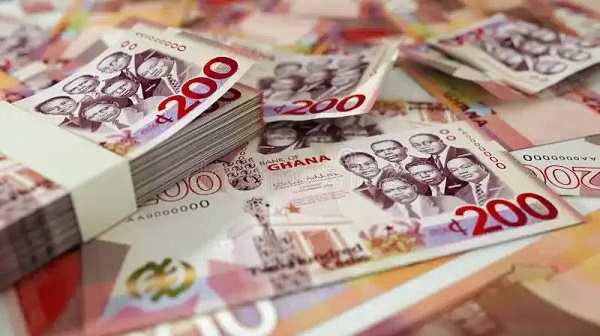In a significant development for Ghana’s economy, the Africa Policy Lens (APL), a governance think tank, has expressed vindication following revelations from the International Monetary Fund (IMF). The IMF recently disclosed that the Bank of Ghana (BoG) injected a staggering $1.4 billion into the foreign exchange market to stabilize the cedi, Ghana’s national currency, against the US dollar. This move has sparked renewed discussions about the strategies employed to bolster the cedi and the implications for Ghana’s economic future.
The IMF’s Revelation
The IMF’s latest review of Ghana’s economic program has confirmed what the APL had previously suggested in a report issued in May 2025. The APL had attributed the cedi’s recent upsurge to deliberate forex support from the Bank of Ghana. Despite facing criticism for its analysis, the APL now finds its assertions corroborated by the IMF, which has lent credibility to its earlier claims.
In its May report, the APL praised the government’s efforts in stabilizing the cedi, noting that the gains were largely facilitated by the Central Bank’s accumulation of gold reserves. This strategic move allowed the BoG to inject more US dollars into the forex market, effectively supporting the cedi’s value.
A Remarkable Turnaround
Ghana’s currency has made a remarkable comeback in 2025, emerging as one of the world’s best-performing currencies. The cedi has appreciated by over 20% against the US dollar year-to-date, a stark contrast to the turbulent 2024 when it lost nearly a quarter of its value. As of mid-May 2025, the cedi was trading at approximately GH¢13.5 to the US dollar, reflecting a 17% gain since the beginning of the year. This appreciation has also contributed to a decline in inflation, which eased to about 21% in April 2025 from much higher levels, indicating reduced import costs.
The APL commended this progress in macroeconomic stability but cautioned that the sustainability of these gains requires careful scrutiny and prudent policy actions.
The Role of Gold Reserves and Forex Interventions
A key factor in the cedi’s stabilization has been Ghana’s strategic use of gold reserves and direct market interventions. The APL highlighted that the Bank of Ghana aggressively accumulated gold through its Domestic Gold Purchase Programme (DGPP), which has significantly bolstered the country’s foreign exchange buffer. Official data revealed that gold reserves increased from 8.78 tonnes in May 2023 to 30.53 tonnes by December 2024, averaging about 1.1 tonnes added per month.
However, the report noted a slowdown in gold accumulation in early 2025, suggesting that authorities may have tapped into these reserves to inject US dollars into the market and meet forex demand. This tactic has provided short-term relief by boosting dollar liquidity and alleviating depreciation pressure on the cedi.
The APL also reported substantial forex market interventions by the Bank of Ghana. In April 2025 alone, the central bank injected $490 million into the forex market to ease dollar shortages. Cumulatively, it is estimated that nearly $1 billion was supplied to the forex market between January and May 2025 as part of the government’s stabilization strategy.
Lessons for Sustainable Economic Management
While acknowledging the positive impact of the cedi’s appreciation, the APL emphasized the importance of sound economic management to sustain these gains. The think tank urged the government to learn from the 2017-2019 period when the cedi was similarly strong. The lesson is clear: sustainable exchange rate stability arises from robust economic policies rather than one-off measures.
The current administration is encouraged to continue structural adjustments initiated under the IMF program, including fiscal consolidation, prudent debt management, and rebuilding foreign reserves. By doing so, Ghana can reinforce its economic resilience and ensure that the cedi’s strength is lasting.
Conclusion
The recent developments surrounding the cedi’s stabilization underscore the importance of strategic economic management in Ghana. The Africa Policy Lens’s vindication by the IMF serves as a reminder of the complexities involved in currency stabilization and the need for ongoing vigilance in policy implementation. As Ghana navigates its economic landscape, the lessons learned from past experiences will be crucial in shaping a sustainable and resilient future for its currency and economy.




